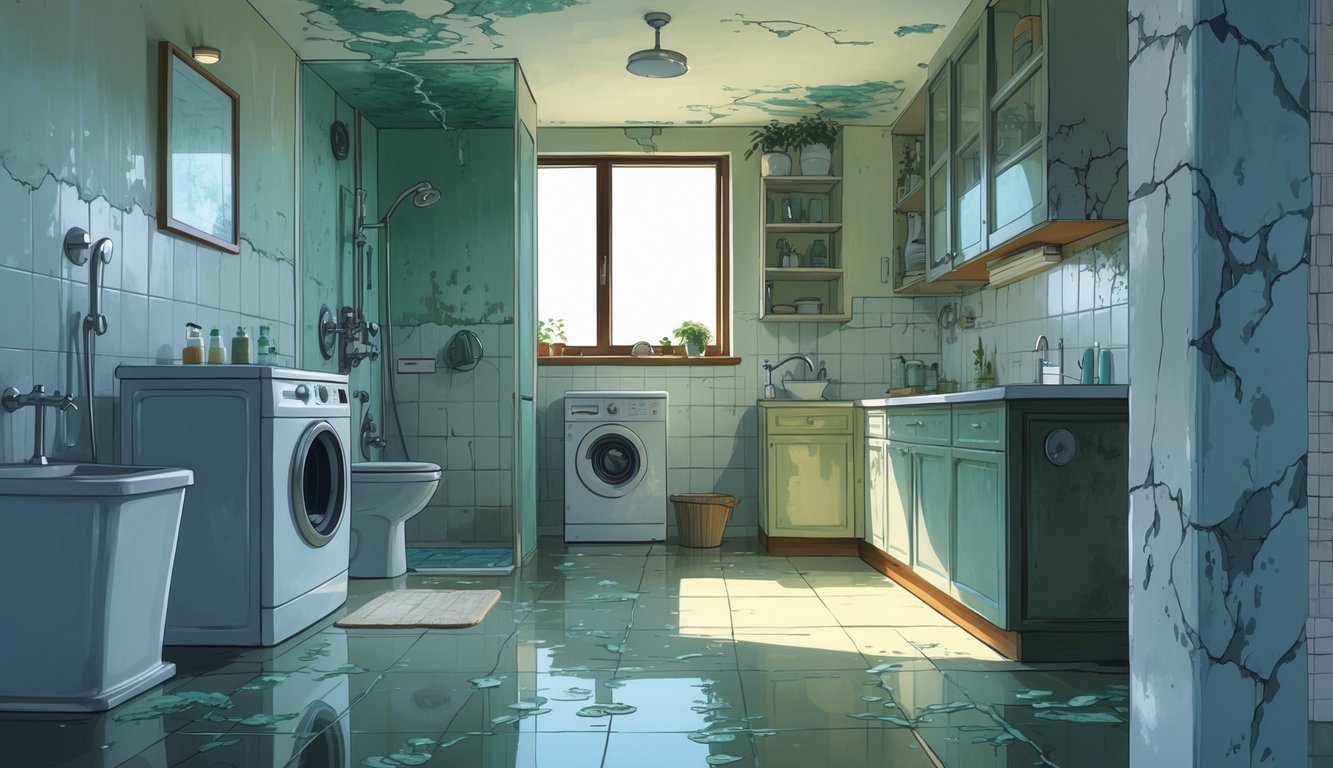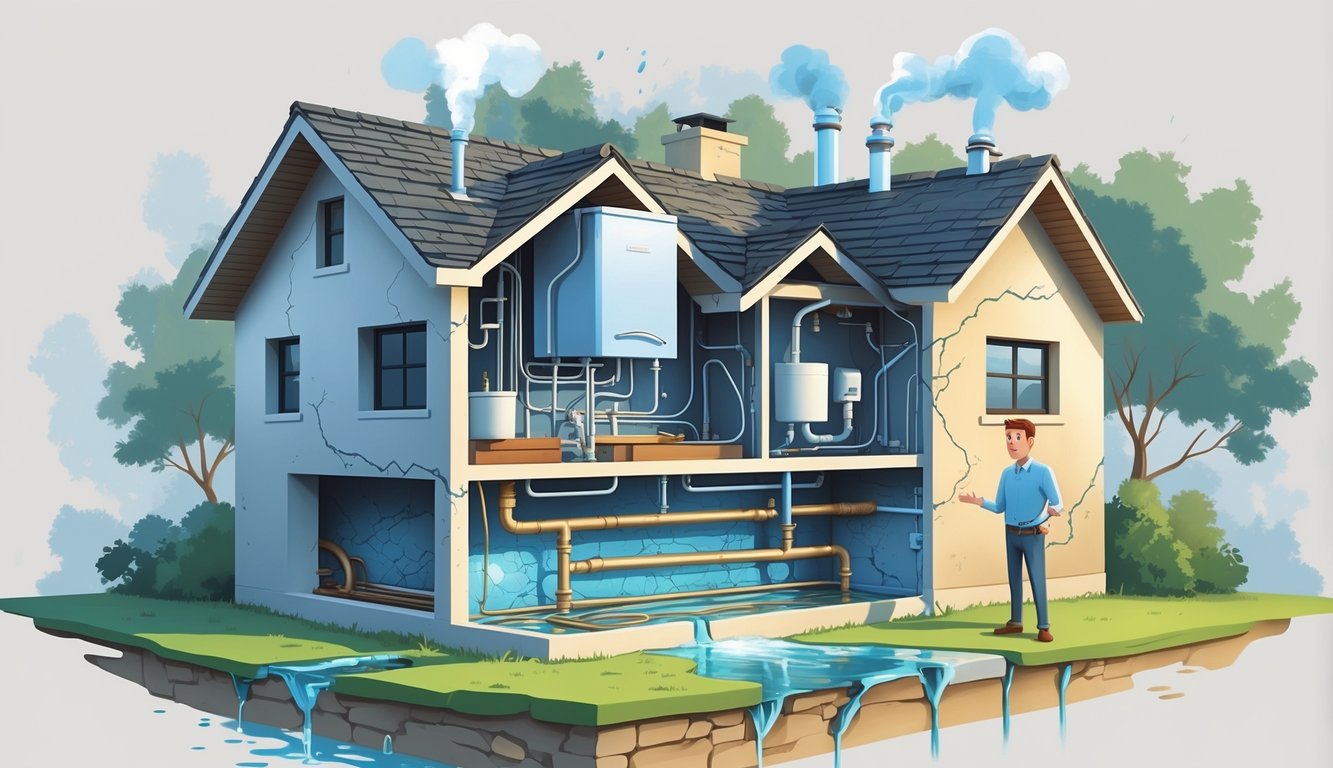
The Impact of Hard Water on Plumbing Systems
Been there—turn the handle, expect water, get a sad trickle. Minerals hiding in my pipes, ruining what should be a simple system. Faucets don’t last, white crust shows up everywhere, even on new stuff. It’s sneaky, but hard water is just draining my bank account.
Clogged Pipes and Reduced Water Pressure
Honestly, I forget about it until everything slows down. Had my pipes cut open once because of a weird noise—inside, just layers of gritty minerals. Calcium and magnesium, mostly. That’s what hard water does: builds up scale until the pipe narrows. Water softening systems get sold as “must-haves” for a reason.
Water flow drops before you notice. I tap the faucet, expect a rush, just get a weak dribble. My plumber says scaling inside old pipes is the real problem—kills water pressure, spikes bills. Nobody warns you when you move in. Want to flush pipes? Sure, but that buildup is stubborn, and replacing pipes is a nightmare.
Quick table for headaches caused by pipe scale:
| Effect | Why It Happens |
|---|---|
| Low water pressure | Mineral narrowing |
| Frequent clogs | Magnesium/calcium buildup |
| Appliance failures | Restricted water flow |
Corroded Plumbing Fixtures
At first, I thought the brown marks were dirt or maybe rust. Nope—hard water has been eating away at my taps and anything metal, especially the joints. Scrubbing doesn’t help; minerals pit the surface, and even the “good” brass stuff can’t escape. Precision Plumbing Pros say corrosion is a slow-motion disaster—scaling lets water chemistry attack seals and metals until, surprise, leaks.
I never measured water hardness growing up, but now I see spots and stains everywhere. Replacing faucets every couple years? My neighbor claims softener pellets stopped her chrome from “turning pink”—which, what? But apparently, it works. Where’s my badge for Most Mineral-Destroyed Sink?
Faucet and Showerhead Performance Issues
Weird how a brand-new showerhead goes all weak and crooked in six months—half the jets clog, some spray sideways. Plumber I trust (and every site about hard water) says scale gets deep into the little channels and aerators, messes with threading and o-rings, and good luck clearing it once it’s in there.
I’ve taken apart faucet nozzles—always the same: white, crusty junk blocking everything. Vinegar soaks sometimes help, but that doesn’t fix the real problem inside the walls. I tell people, slow taps and weird water patterns aren’t always old pipes—it’s usually just minerals, building up right at the source. If only ignoring it actually worked.
Hard Water Damage to Appliances
Honestly, I never thought I’d care about magnesium or calcium, but here we are—me, grumbling about mineral crud gumming up my water heater, dishwasher, and (let’s be real) every washing machine I’ve owned. Energy bills creep up, filters get gross, and stuff breaks way before it should. I spot chalky gunk, stuff starts making weird noises, and the plumber just shrugs. Which, you know, is not comforting.
Water Heater Inefficiency and Failure
My water heater’s been groaning lately. Every time it does, I picture this crusty layer of minerals just lounging on the heating element, making everything work harder for no reason. The U.S. Department of Energy claims a measly 1/16-inch of scale can jack up heating costs by 15%. That’s ridiculous.
So, lukewarm showers? Not a haunted house—just more scale. I know I should flush the tank every year (I don’t), but even when I do, it’s never enough. Scale buildup can wreck a heater years before its time, but honestly, who’s got the energy to keep up with all that? Then the electric bill shows up and—surprise!—I’m back to regretting my life choices.
Dishwasher and Washing Machine Damage
Ever heard your dishwasher sound like it’s chewing gravel? That’s just hard water showing off. Soap doesn’t rinse right, rinse cycles go forever, and everything comes out spotty. My washing machine’s drum gets these gross scale patches, and nothing I do gets the film off glasses or towels.
Yeah, vinegar soaks do something, but how many hours do I really want to spend scrubbing? Supposedly, rinse aids and baking soda can help, but I’m not convinced. Clothes feel stiff, whites look sad, and glassware? Forget it. Every load just wears out hoses and heating elements faster. It’s like slow-motion sabotage.
Diminished Appliance Lifespan
Nobody warns you that hard water is quietly murdering your appliances. You just wake up one day and realize you’ve replaced everything twice as fast as you should have. Water softeners and descalers? Helpful, but not miracle workers. I’ve tried both. They only go so far, and maintenance still eats up weekends and paychecks.
I watched a dishwasher that was supposed to last ten years die at seven. After a few years of repairs, I start wondering if it’s even cheaper to just buy new stuff and give up. But then, what, just let hard water win? Not a fan.
Structural and Environmental Risks from Hard Water

Let’s not pretend the minerals stay in the pipes, either. They wander, mess with seals, and suddenly there’s a damp spot in the drywall. I end up searching for “mysterious wall stains” at 2 a.m. Meanwhile, stuff starts rotting or cracking and nobody connects it to the water.
Hidden Moisture and Water Damage
My neighbor’s basement? Disaster. A tiny hard water drip behind the utility sink led to months of weird moisture. Nobody expects mineral scale to redirect leaks, but it does. Insurance guy muttered about broken seals, but I’m convinced hard water eats sealant way faster than anyone admits.
I’m not listing symptoms—hard water just does its thing for years. I’ve seen water back up at pipe joints, not from clogs, but from crusted-over minerals forcing water into the framing. You patch it, but industry folks warn that moisture finds a new way out.
Techs tell me water heaters with scale start leaking behind the tank, and you don’t notice until the floor’s ruined. It’s not a leak, exactly—it’s a mess. Warranties dodge “hidden accumulations” like it’s a sport.